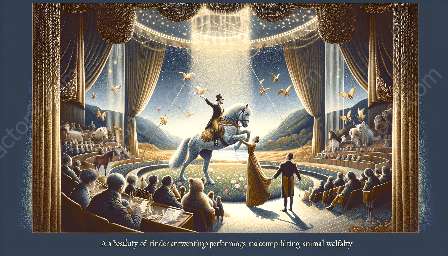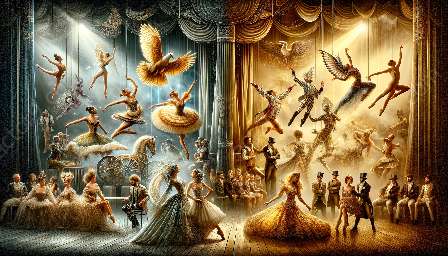Music plays a crucial role in enhancing the overall ambiance and emotional impact of circus performances. The synchronization of music with acrobatics, clown acts, and other elements of circus arts adds depth and excitement to the show. When considering the financial aspects of hiring musicians for circus productions, it is essential to understand the impact of music on the success and appeal of the show.
The Role of Music in Circus Performances
Music is an integral part of circus performances, serving as the backbone that ties together the various acts and creates a cohesive atmosphere. The right music can amplify the drama, heighten the suspense, and evoke powerful emotions in the audience. It complements the physical feats and artistic displays of the performers, elevating the entire experience to a new level.
Understanding Circus Arts
Circus arts encompass a wide range of skills and disciplines, including acrobatics, juggling, aerial displays, clowning, and more. These diverse acts come together to create a captivating and immersive spectacle that relies on the seamless integration of music and sound to convey the narrative and enhance the visual impact.
Financial Considerations of Integrating Music into Circus Productions
When contemplating the financial implications of hiring musicians for circus productions, several key considerations come into play. The following are some essential factors to take into account:
- Music Licensing and Royalties: Circus productions that use copyrighted music must obtain the necessary licenses and pay royalties to the respective artists or rights holders. These costs can vary based on the popularity and usage of the music.
- Live Musicians vs. Recorded Music: Deciding between hiring live musicians or using pre-recorded music involves assessing the budget, the desired quality of the sound, and the overall experience for the audience. Live musicians may add a dynamic element to the show but come with higher expenses, including fees, accommodations, and equipment.
- Audio Equipment and Sound Engineering: Quality sound equipment and skilled sound engineers are essential for delivering an immersive auditory experience in circus performances. Investing in professional audio systems, mixing, and amplification may require a significant portion of the budget.
- Music Composition and Arrangement: Some circus productions opt for custom-composed music or tailored arrangements to create a unique and cohesive soundtrack that complements the specific themes and acts within the show. The costs associated with hiring composers and arranging music should be factored into the financial planning.
- Touring and Travel Expenses: Circus productions often involve touring to various locations, which adds travel, accommodation, and logistical expenses for the musicians and their equipment. Ensuring a smooth and cost-effective travel plan is essential for creating a sustainable budget.
The Impact of Music on Circus Arts
Integrating music into circus arts not only enhances the audience experience but also provides an avenue for artistic innovation and expression. The right music can set the pace, establish the atmosphere, and guide the emotional journey of the audience throughout the performance. It elevates the storytelling aspect of circus arts and contributes to the overall artistic integrity of the show.
Maximizing the Benefits of Music in Circus Productions
While the financial considerations of hiring musicians for circus productions are important, it is equally vital to recognize the tremendous value that music brings to the overall artistic vision. By carefully planning and budgeting for the integration of music, circus productions can optimize their creative potential and deliver unforgettable experiences to audiences worldwide.


































